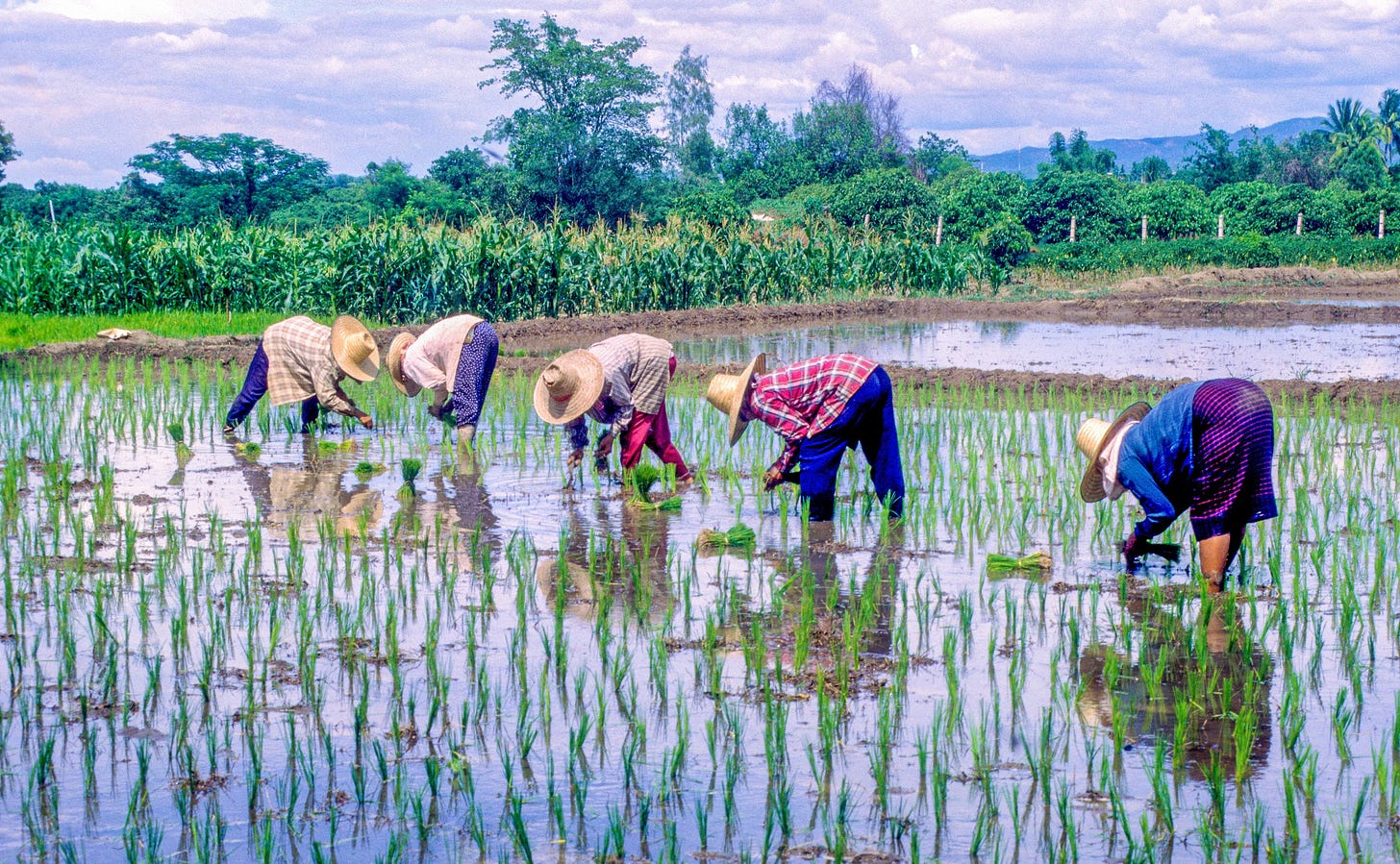STUDY ANALYSIS: The Social Consequences of Rice Farming
And now for something a little different...
I’ve talked at length, in my books and various writings, about the social consequences of different forms of food production.
It’s my central thesis in my last book, The Eggs Benedict Option, that social control and control of the food supply go hand in hand, and have since at least the dawn of agriculture in the Near East, about 10-12,000 years ago. Different forms of control of the food supply—hunter-gatherer vs settled agriculture, in particular—necessarily lead to different social forms with different kinds of hierarchy and authority. This relationship was identified early by ancient thinkers, including Plato in his Republic, who had Socrates claim a perfect harmonious society could be created simply by making sure everyone in it is vegetarian.
Today, though, we seem to have stopped thinking critically about the relationship between food and freedom—to our detriment.
Indeed, we seem to think that the food supply has nothing to do with politics and society any more. This couldn’t be further from the truth. As I lay out in The Eggs Benedict Option, the “plant-based agenda”—the aim, supported by governments, NGOs, corporations, and the scientific and medical establishment, to get the entire world population to abandon animal products for plant foods—is clearly part of a broader agenda of social and political transformation to a system of corporate socialism. Global population growth and the “Climate Crisis” are the justifications for the adoption of the world’s first uniform global diet, but this can’t disguise the fact that the main beneficiaries of this change will not be ordinary people but corporations and their partners in government.
On to today’s subject for analysis. It’s long been suggested that one of the main differences between Western and Chinese societies, between their individualistic and communalistic tendencies respectively, is a result of the different social demands made by wheat as opposed to rice farming. This was a central part of Marx’s theory of “oriental despotism,” for example, and was developed in the historian Karl Wittfogel’s 1957 book of the same name. It’s a compelling argument, frankly.
A new study in social psychology claims, for the first time, to verify this old theory on the basis of a strict “scientific” comparison of two neighbouring communities in China one of which cultivates rice, the other wheat. Previous work on the differences between “oriental despotism” and the freer systems of grain cultivation have lacked comparative rigour, because they’ve had to jump across massive expanses of time and geography, which introduces a lot of other variables into the mix.
Here’s how a press release explains the benefits of the new study.
The “rice theory of culture” proposes that the intense labor and cooperative irrigation required in rice farming foster more collectivistic communities compared to the relatively independent nature of wheat farming. This theory is based on observations across various rice-growing regions from Japan to Sierra Leone, where cooperative labor is a cultural cornerstone. However, proving this causality has been challenging since cultural traits can be influenced by numerous factors, and assigning people to specific farming tasks on a large scale is impractical. (Press release)
After World War II, the Chinese government set up state farms across the nation, two of which, in Ningxia province, ended up being chosen to cultivate different grains: either rice or wheat. The farms, just 56km apart, were selected by the researchers because they are close to each other and also share very similar environmental conditions: temperatures, rainfall, and area of land under cultivation.
Here’s what the researchers did.




